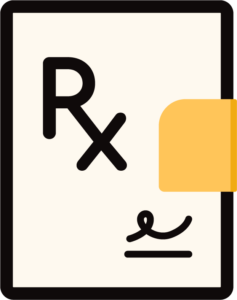About CLIA
CLIA, or the Clinical Laboratory Improvement Amendments of 1988 are regulations that impose federal standards on all U.S. testing facilities or sites that use human specimens to diagnose, prevent, or treat disease. Under CLIA, there are different test complexity categories assigned to tests based on seven criteria scored by CLIA including criteria such as risk for an incorrect result and sample specimen type. The most simple tests with the lowest risk for incorrect results are given the status of CLIA waived, and are therefore FDA cleared for home use.
Additionally, to use a CLIA waived machine, a site must only have a CLIA certificate and follow the manufacturer’s instructions on how to operate the test. Other CLIA requirements that apply to non-CLIA waived tests, such as inspections, certifications, and meetings of standards do not apply to CLIA waived tests. Therefore, getting started with and operating CLIA waived tests is a fairly simple process. For more information regarding CLIA, please visit here, and for more information on how to obtain a CLIA waiver, please visit here.





